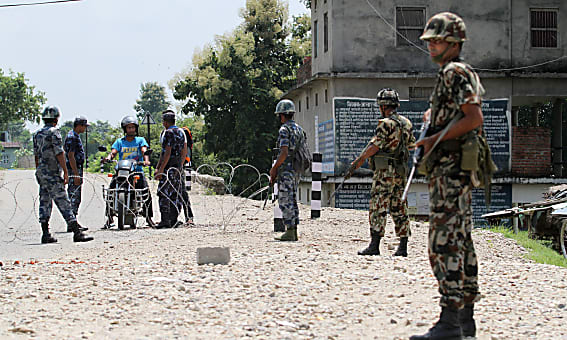
Kathmandu, Aug. 24 -- In 2015, as the new constitution was set to be promulgated, a large section of Nepalis-Madhesis, Tharus and Janajatis-were protesting the statute on the grounds that various provisions had marginalised them and that their demands were being ignored.
Protests in the Tarai continued for days, with at least 50 people killed in violent clashes. August 24, 2015 was one of the deadliest days, when at least nine people, including a police official and a toddler, were killed in Tikapur. The clash was a result of simmering discontent among Tharus against a campaign called 'Akhanda Sudurpaschim', or Undivided Far West, which was backed by the leaders of the major parties. A clampdown and a curfew ensued. There were arbitrary arrests and many Tharus fled as houses were burnt down and people from the indigenous community attacked.
Today, August 24, marks four years since the Tikapur incident.
Despite the protests, the constitution was passed on September 20, 2015. While the Madhesi parties refused to sign the document, there were celebrations in some parts of the country, with the government hailing the constitution as "the best in the world". With continuing protests, an amendment was passed on January 23, 2016, but many said that it was too little, too late.
Next month will mark four years since Nepal got a new constitution.
In Tikapur, people have largely come to terms with what happened, but the scars remain. In a bid to maintain social harmony and deal with the psychological impact of the violence a three-day Tharuhat/Tharuwan conference is being held in Tikapur from Saturday.
According to the organising committee, peace and communal harmony, rights of the Tharu community, and grievances against constitutional provisions are the conference's major agendas.
"The conference will try to find ways to get the Tharu community's demands addressed and minimise the effects on social harmony caused by the Tikapur incident," said Minraj Chaudhary, coordinator of the organising committee.
An amendment to the constitution is the common demand of both Tharus and Madhesis. But while Madhesis have representation in the form of political parties, Tharus have no party of their own. The one representative from Tikapur's Tharu community-Resham Chaudhary-is currently in jail after the district court in March handed him a life sentence for masterminding the Tikapur violence.
Now, four years since the constitution was promulgated, two Madhesi parties-Samajbadi Party and Rastriya Janata Party-are saying that they will once again demand an amendment. But neither Tharus nor Madhesis know if the amendment will happen.
"An amendment could not happen when the Nepali Congress was positive about it and the Rastriya Janata Party and Sanghiya Samajbadi Party were both part of government. It cannot happen today," said CK Lal, a political analyst.
As Tharus are expected to find a way to demand an amendment during the conference, Madhesi parties are trying to form a united force to raise the issue in parliament and on the streets.
But the road is fraught with challenges. A working alliance between the two Madhesi parties will only be possible if the Samajbadi Party Nepal-formed after the merger between Upendra Yadav's Sanghiya Samajbadi Forum-Nepal and Baburam Bhattarai's Naya Shakti Party-quits the government. A party that is in government cannot protest against it. However, Yadav, chairman of the Samajbadi Party, does not seem likely to quit government anytime soon.
On the other hand, the Rastriya Janata Party has a divided presidium that comprises of six leaders. Some leaders on the presidium, according to party insiders, are concerned about losing their space if the two parties unite.
"Unless leaders agree to accept Yadav's dominance in the unified party, unification will be a difficult task," said Lal. "And without Yadav at the helm, the party may not be able to take bold and necessary decisions."
This has created a catch-22 situation.
"An amendment is not possible without a movement stronger than the previous one," said Lal. "This constitution is an outcome of a big conspiracy. So it's not going to be amended easily as a majority are against any change."